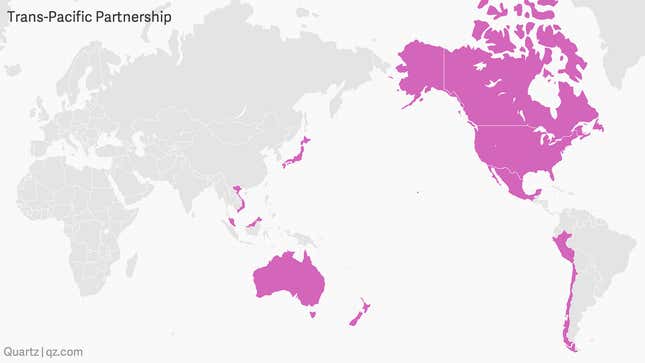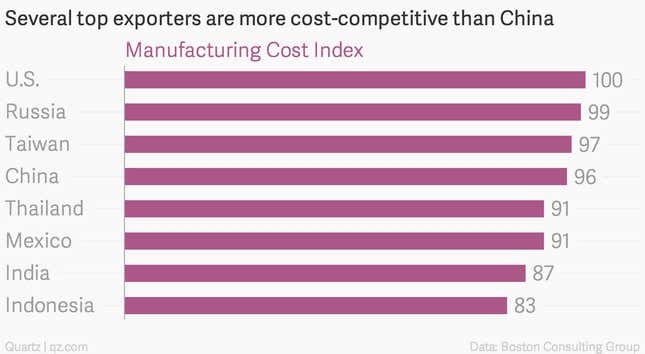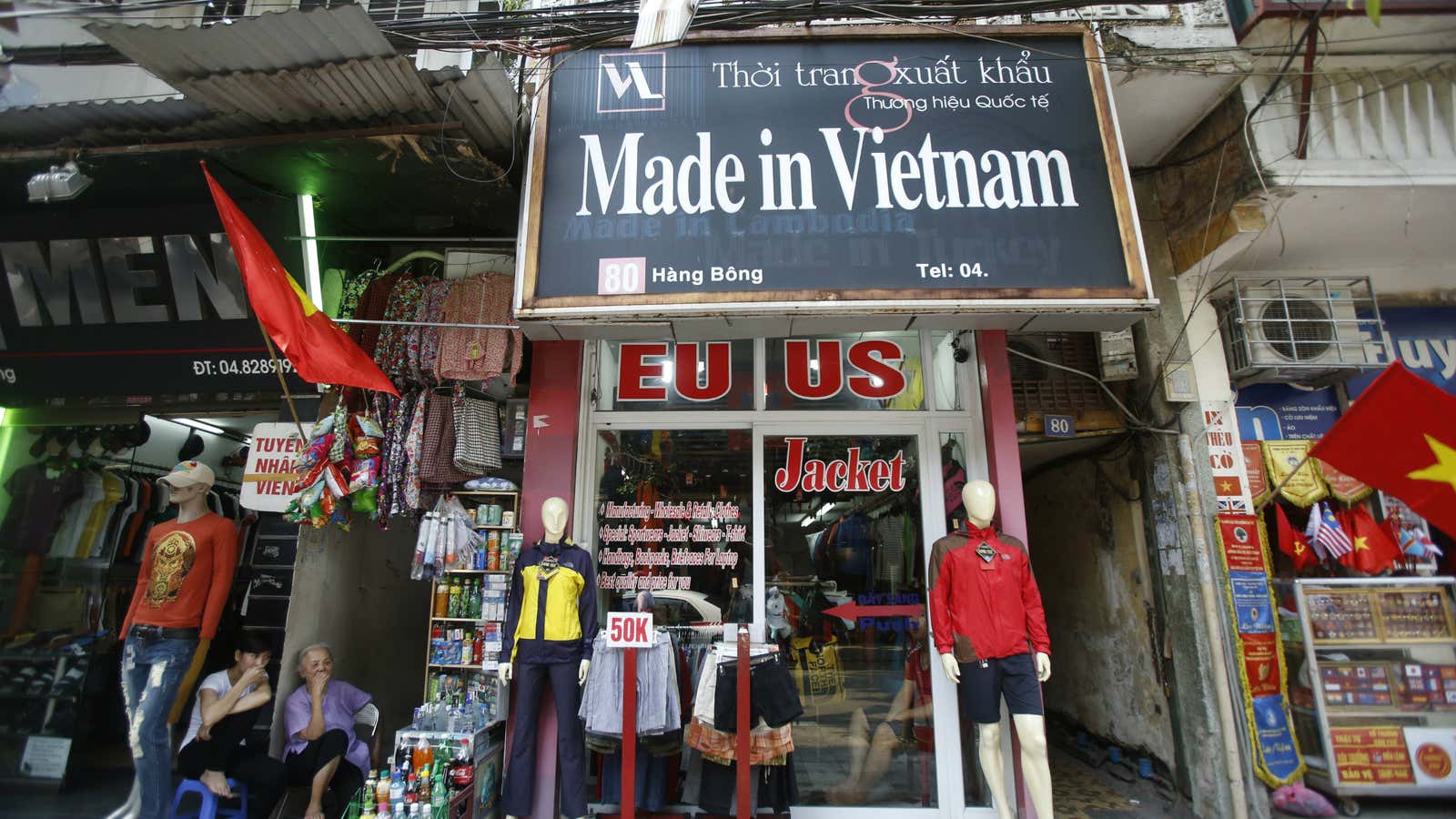The US’s midterm elections were a decisive victory for the Republican party, which now controls both houses in the US Congress—and that’s good news for the Trans-Pacific Partnership, a proposed free-trade agreement between a dozen countries that excludes China.
Republicans are big fans of the TPP, which would drop trade tariffs and regulatory barriers among the participating countries. Rand Paul, the Republican senator from Kentucky, promoted the TPP last week at a speech in New York, saying: “Instead of just talking about a so-called ‘pivot to Asia,’ the Obama administration should prioritize negotiating the Trans-Pacific Partnership by year’s end.” TPP member nations are using the APEC summit this week in Beijing as a chance to meet on the sidelines, and plan to discuss the pact Nov. 8.

Actually, Obama already supports the TPP, but key Democrats have blocked the pact, opposing fast-tracked trade agreements over concerns they would send more manufacturing jobs overseas, and in particular hurt the auto industry. Now, Obama may be able to “ride the Republican wave” to get trade deals passed, as Foreign Policy puts it.
The US isn’t the only country that has to worry about losing jobs. China is facing a similar problem as its manufacturing costs have crept up in recent years—particularly labor, as the number of factory workers shrinks, and workers demand higher wages, pensions, and overtime. The cost of manufacturing goods in China is now higher than several of the world’s top exporting countries, according to Boston Consulting Group:

Mexico is a TPP member, and Taiwan is pushing to enter the pact, which could make both nations even cheaper and easier to manufacture in for partners.
That study didn’t look at several low-cost manufacturing countries that are members of the TPP, including Malaysia, Vietnam, Chile, and Peru.
Vietnam’s labor costs are currently about half of China’s, and foreign companies like Samsung are already moving manufacturing facilities there. In Vietnam, the deal is already being promoted as a way to balance the country’s trade dependence on China.
Beyond finished goods manufacturing, the trade pact’s “Rule of Origin” requirements could also cut into China’s dominance in materials like cotton yarn. A controversial “yarn forward” proposal would require textile-making member nations in the TPP to also purchase the yarn they use from other member nations to get the full trade benefits of the pact.
The TPP could add $77 billion in income to US companies by 2025, the Peterson Institute estimates, and an additional $305 billion to world exports. But some of that money would come right out of China’s pockets.
*An earlier version of this article incorrectly said Malaysia, Vietnam, Chile and Peru were “expected” to be TPP members. They have already joined.
